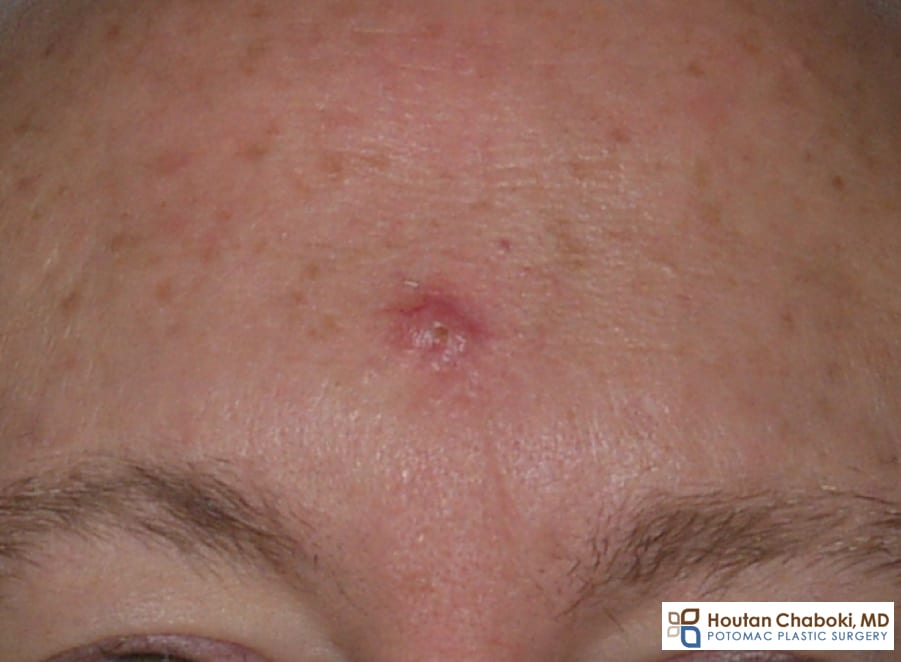Skin cancer affects patients of all skin types and ages. While occurring more commonly in older patients with lighter skin, skin cancer can develop in everyone, including younger and darker skinned patients too.
The main types of skin cancers are basal cell carcinoma (BCC), squamous cell carcinoma (SCC), and melanoma. By far the most common skin cancer is basal cell carcinoma, and this type occurs more likely in areas with increased sun exposure. The nose and face, being most exposed to the sun, is thus more likely to develop skin cancer and commonly has basal cell cancers.
How can one reduce the risk of skin cancer?
A cosmetic surgeon, especially a facial specialist, may treat patients with skin cancer in addition to wrinkles. Methods to reduce skin cancer are similar to reduce wrinkles and have smoother skin.
Sun protection is the primary method to reduce the chance of getting skin cancer. We recommend sunblock that is at least SPF 30 and blocks both UVA and UVB rays. Sunblock should be applied daily, even on cloudy days. Sunblock should also reapplied during the day, especially during prolonged outdoor activities.
Other methods to reduce risk of skin cancer include:
- maximize shade and sun protection with clothing, wide brim hat, sunglasses, umbrella
- avoid sun burns
- avoid tanning beds
- obtain routine skin checks by a board certified physician, ex. dermatologist, primary care physician, etc
Does coffee or tea help?
There is growing research evidence that caffeine can play a protective role in reducing the risk of skin cancer. A large epidemiological research study from a team at Harvard Medical School suggests the amount of caffeine intake from all dietary sources (coffee, tea, etc) was inversely associated with BCC risk for both men and women. The risk reduction was dose dependent, meaning that more caffeine showed more protection for this type of skin cancer. In this study, however, caffeine was not shown to reduce incidence of the other types of skin cancers, such as squamous cell or melanoma.
But, another large research study from a team at the National Cancer Institute does suggest a risk reduction in melanoma from caffeine intake.
We can add caffeine intake as another method to reduce risk of skin cancer. – Houtan Chaboki, MD
Keep in mind that scientific data is preliminary and evolving. In addition, increased caffeine intake does not replace the other more important methods of skin cancer reduction. The most effective way to reduce skin cancer risk is to practice safe sun habits and to start these habits in children.
What questions do you have? Share your thoughts below.


Is this kind of cancer deadly? I have one small on forehead and one on cheek.
Thank you for reading the blog!
Skin cancers, such as basal cell carcinoma, tend not to spread or metastasize. Other cancers such as melanoma can, however, spread. Patients should be evaluated by a physician to help determine appropriate options.
Best,
Dr. Chaboki